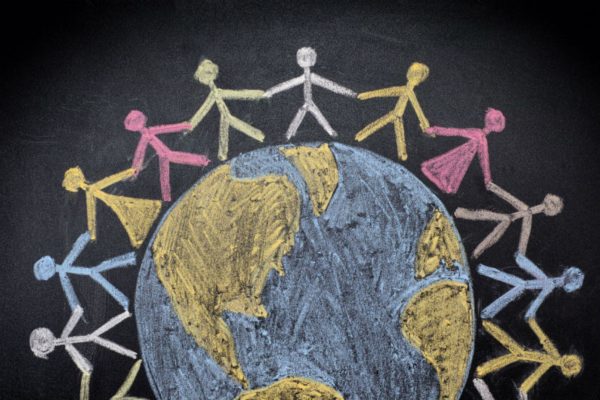Natural scientists would rather work in their labs or their natural labs, such as in the Maya Tropical Forest or on Himalayan glaciers. Every part of this planet holds unanswered questions that scientists would joyously study for a hundred lifetimes.
It takes much to rouse scientists to explain their concerns for humanity about the declines of nature. Activism takes scientists out of their comfort and confidence zones, but if there was ever a time to do it, now is that time.
Indeed, the heroes of the environment include more policy people and artists, though I would like to think my own tribe of natural scientists was as important. Earth Day started after the wild ride of the 1960s, carried along with a growing scientific arsenal that showed nature in decline from burning rivers, toxic waste and sooty cities. Some scientists dared to speak up about those dangers in the 1960s, and some of them are still speaking up.
Earth Day and the broader zeitgeist that created it produced a phalanx of laws to protect the environment and human health, which made America greater for more people in terms of better health and new jobs. Air quality improved, water quality improved, and we have more sewage and water treatment that spread around the world.
But the divide of the environmental impacts on rich and poor has never been greater. We have improved air quality in rich nations in contrast with off-the-charts pollution levels in China and India, while the hammer of global warming, forged in richer nations, disproportionately pounds the world’s poor.
Two recent travels underscore this divide: through the streets of Rome and down the Tiber and through the cities of Peru and down its El Niño-swollen quebradas. Despite its congestion, Rome is starkly cleaner.
Both have hordes of people and motorcycles, but the lack of pollution laws and enforcement make every step along the garbage-strewn streets in Peru choked with life-shortening exhaust. When I first visited Rome in 1983, Rome’s air was also polluted from exhaust. Why Rome is cleaner today is partly due to the global impact of Earth Day, and to the fact that Europe like America is rich enough to care about clean air and water laws that increase human well-being and longevity.
For Earth Day 2017, bad news prevails about species extinction and soil degradation. As a participant in a recent conference in the Vatican on biological extinctions, I can say that we have made less progress on these keystones of nature — species diversity and soil health. Again, rich nations have made progress with such laws as the Endangered Species Act and steady attention on soils.
But both are always in threat as administrations change and most of the hemorrhaging of species and soils is in the tropics, where poverty and politics trump the needs for preservation. We have embarked on the sixth global extinction in the Earth’s 4.55 billion years.
Long before Earth Day, but a clear precursor to it, was the Dust Bowl. Many Americans know the role the New Deal and Civilian Conservation Corps played.
But fewer know the out-sized role that Big Hugh, the soil scientist Hugh Hammond Bennett, played when he used a skillful mastery of science and politics to organize the Soil Erosion Service. Bennett and the service that became today’s Natural Resources Conservation Service put legions to work to restore soils and their legion of ecosystem services that made America greater such as water purification, fertility and carbon sequestration.
But now enter President Donald Trump, who seems determined to cut environmental protection by slashing the very programs that grow the economy with clean technologies and save lives in the process. All types of scientists will rise from their labs and rainforests to march for science on Earth Day 2017 in Washington, D.C., and across the country to stand against the ignorance of science by those in power, who question even the basics of science.
Remember the Dust Bowl and Big Hugh and hope these marching scientists will make an administration listen.
Tim Beach is the C.B. Smith Sr. Centennial Professor of Geography and the Environment at The University of Texas at Austin.
A version of this op-ed appeared in USA Today, San Antonio Express News, Abilene Reporter News, Corpus Christi Caller Times, Waco Tribune Herald, Psychology Today and the Austin American Statesman.
To view more op-eds from Texas Perspectives, click here.
Like us on Facebook.




